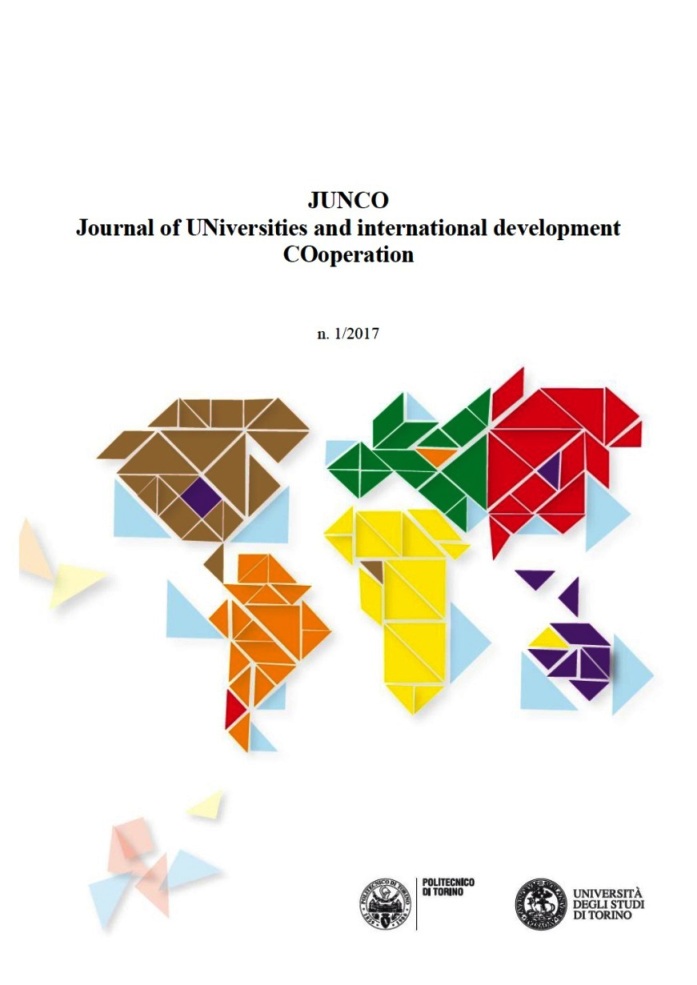LA COOPERATION DECENTRALISEE: L’IMPORTANCE DES RELATIONS ENTRE LES COMMUNAUTES DANS LE CONTEXTE ACTUEL
DOI:
https://doi.org/10.13135/2531-8772/2169Abstract
Development cooperation has often been considered as a transfer of resources from donor countries to beneficiary countries in order to create development conditions in the regions with low income.
A kind of solidarity that expresses itself in many cases in a form of delegation to the actors of cooperation (international, no-government etc. …) to whom is required to operate to lessen the suffering of the poorest people and to realize the conditions of an autochthonous economic growth of the territories of the South of the world.
Decentralized cooperation’s experiences have instead revealed a new form of cooperation in which the community does not delegate to someone the initiative but it becomes the protagonist of the action by sharing knowledge, skills, resources and technologies.
A mode that acquires particular meaning in the new international scenarios both from a political point of view and from an environmental point of view.
In this context University has an important role and particularly RUSSADE project (Network of Sahelian Universities for Food Security and Environmental Sustainability) that trains young people and students to look beyond the local reality, produces knowledge that can become everyone’s heritage and brings his unique scientific and educational research contribution in the field of decentralized cooperation.


